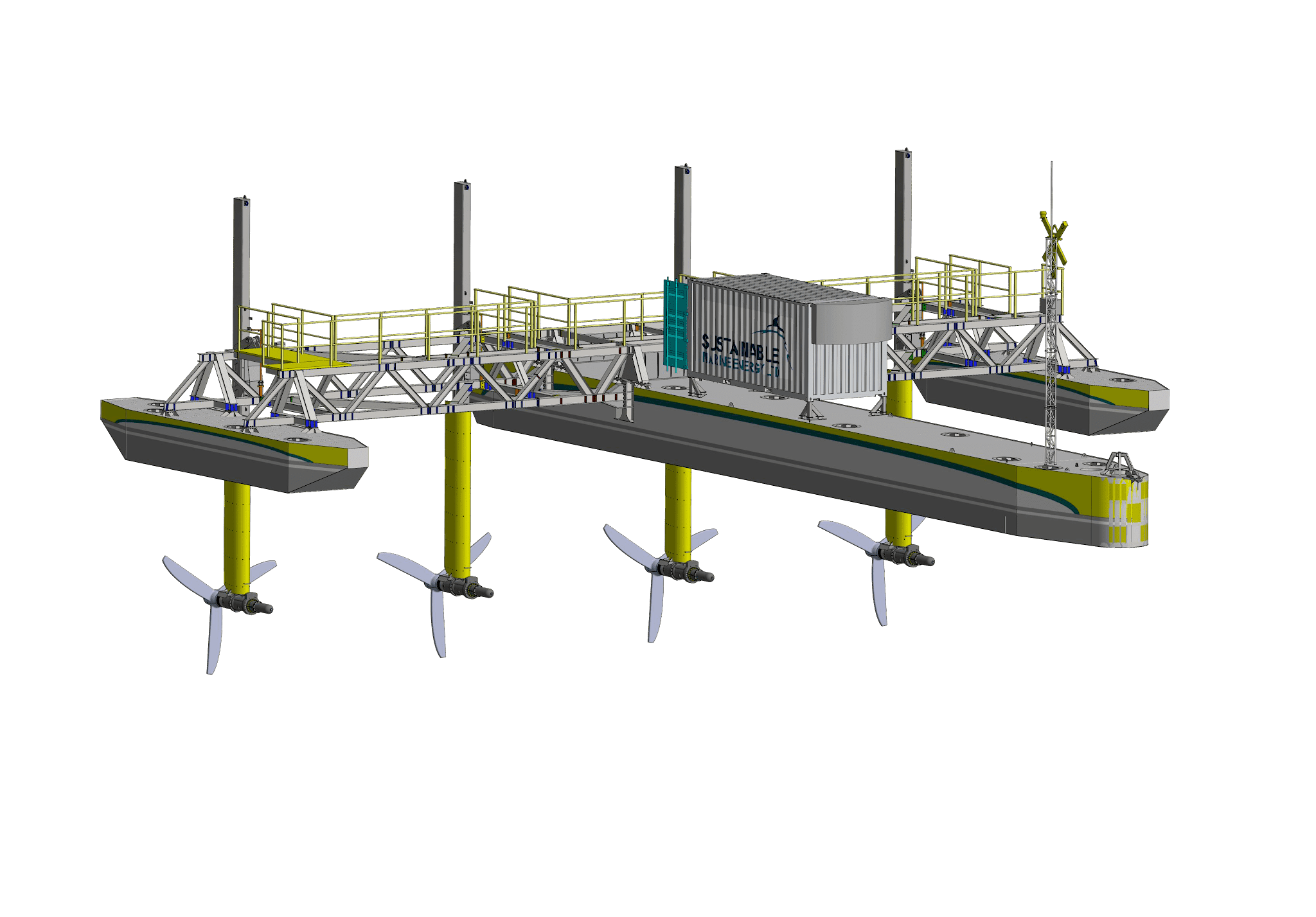
Tidal Energy Advantages & Disadvantages Mechanical Education
Tidal energy is a renewable energy source which harnesses the kinetic energy from tidal currents to produce electricity. Since the movement of water is the key to production of this form of energy, the common component in all tidal energy stations are underwater turbines. Moving water makes the turbines spin, producing electricity both during.
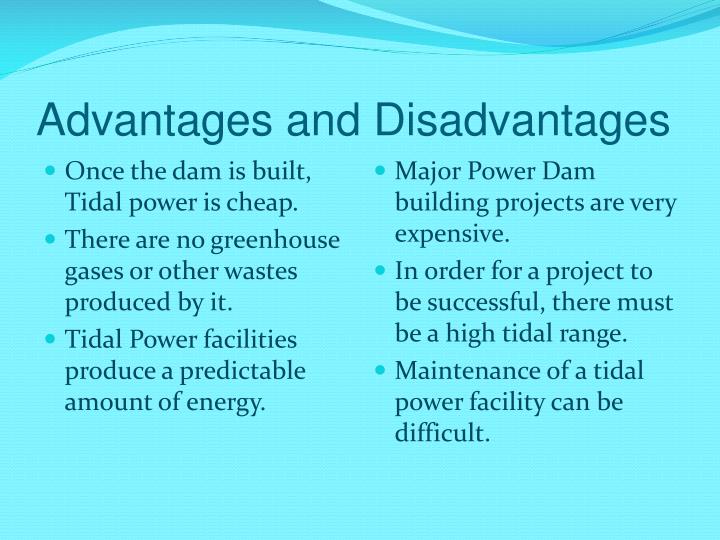
PPT Ocean Waves and Tidal Power PowerPoint Presentation ID3146975
Tidal Energy: Advantages, Disadvantages, and Future Trends. Tidal energy is a growing renewable, clean, and environmentally friendly energy source that produces far fewer greenhouse gases than fossil fuels such as coal and oil. Moreover, its high predictability and elevated power output are also among the advantages of tidal energy.
Tidal Energy Friends Tidal power stations
List of the Disadvantages of Tidal Energy and Power. 1. Legal concerns exist regarding underwater land ownership. Riparian rights are systems that allocate water among those who possess land along its path. It's part of the common law heritage in Australia, Canada, and the eastern United States.
Tidal Energy Friends Tidal power stations
2. Expensive than Other Resources. The high cost of initial investment is a major disadvantage of tidal power. Due to the high density of water, tidal energy turbines need to be far more robust than wind turbines. The price tag for building a tidal power plant shifts based on the specific technology employed.

Tidal Energy Advantages And Disadvantages Tidal energy, Renewable sources of energy, Passive
Some advantages of tidal energy are: Environment-friendly. A highly predictable energy source. High energy density. Operational and maintenance costs are low. An inexhaustible source of energy. Some of the disadvantages of tidal energy are: High tidal power plant construction costs. Negative influence on marine life forms.
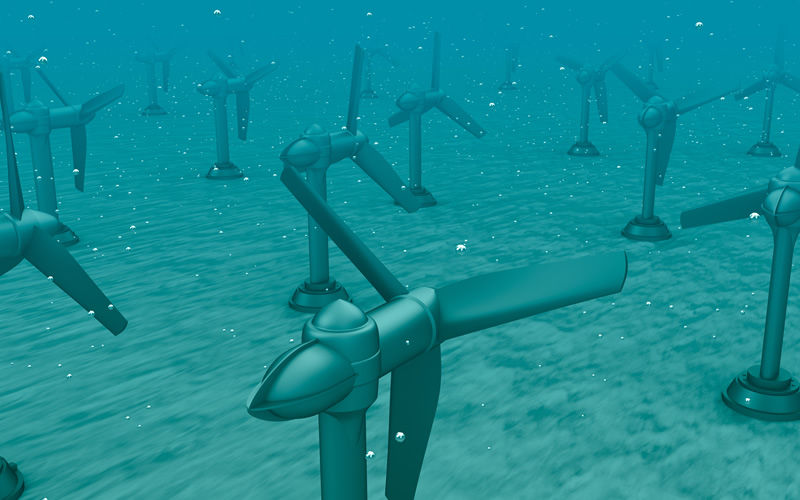
Advantages and Disadvantages of Tidal Power Greentumble
Tidal energy has long been touted as a promising source of renewable energy, offering the potential to harness the power of the ocean to create clean, sustainable electricity. In this blog post, we will take a deep dive into the pros and cons of tidal energy, examining its uses, advantages, and disadvantages.
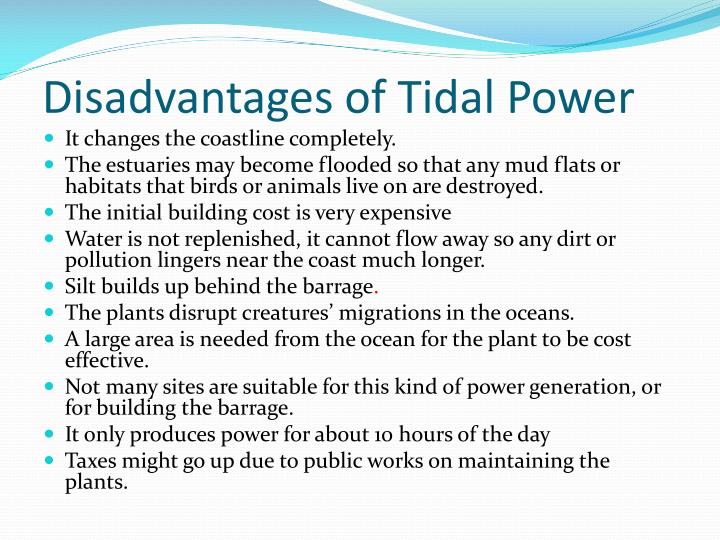
PPT Tidal Power PowerPoint Presentation ID1585943
Here are some tidal energy advantages and disadvantages that must not be overlooked. Advantages of tidal energy: clean and compact. Tidal power is a known green energy source, at least in terms of emitting zero greenhouse gases. It also doesn't take up that much space. The largest tidal project in the world is the Sihwa Lake Tidal.
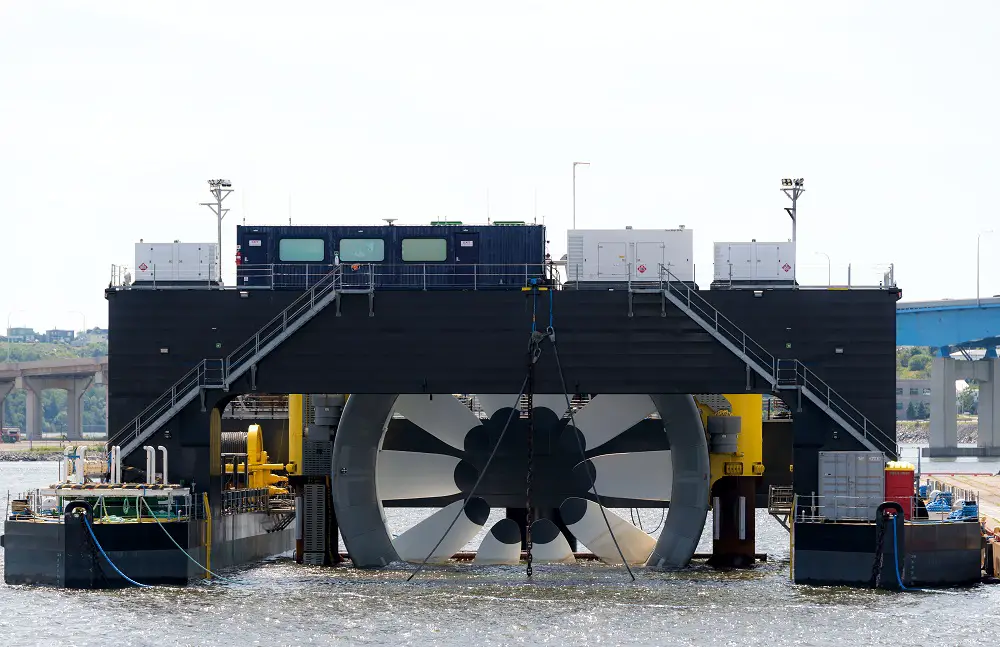
Tidal Energy Advantages and Disadvantages Energy Follower
Tidal energy is a renewable and sustainable source of energy.. Advantages and disadvantages of tidal energy. Advantages. Unlike solar and wind energy, tidal movements are reliably constant.

6 Tidal Energy Advantages and Disadvantages Environment Co
Tidal energy is already offering many advantages, but put in mind that it is also linked to some disadvantages. In order to completely understand its significance and effects, it would help to gain a clearer understanding of these opposing aspects. List of Advantages of Tidal Energy. 1. It is renewable.

Tidal energy advantages and disadvantages Artofit
Tidal Energy Advantages and Disadvantages. Generating electrical power from tidal energy has advantages and disadvantages. One of the biggest advantages of tidal energy is that the tides are predictable and occur all along the oceanfront; however, the current is not constant but fluctuates as tides move in and out.
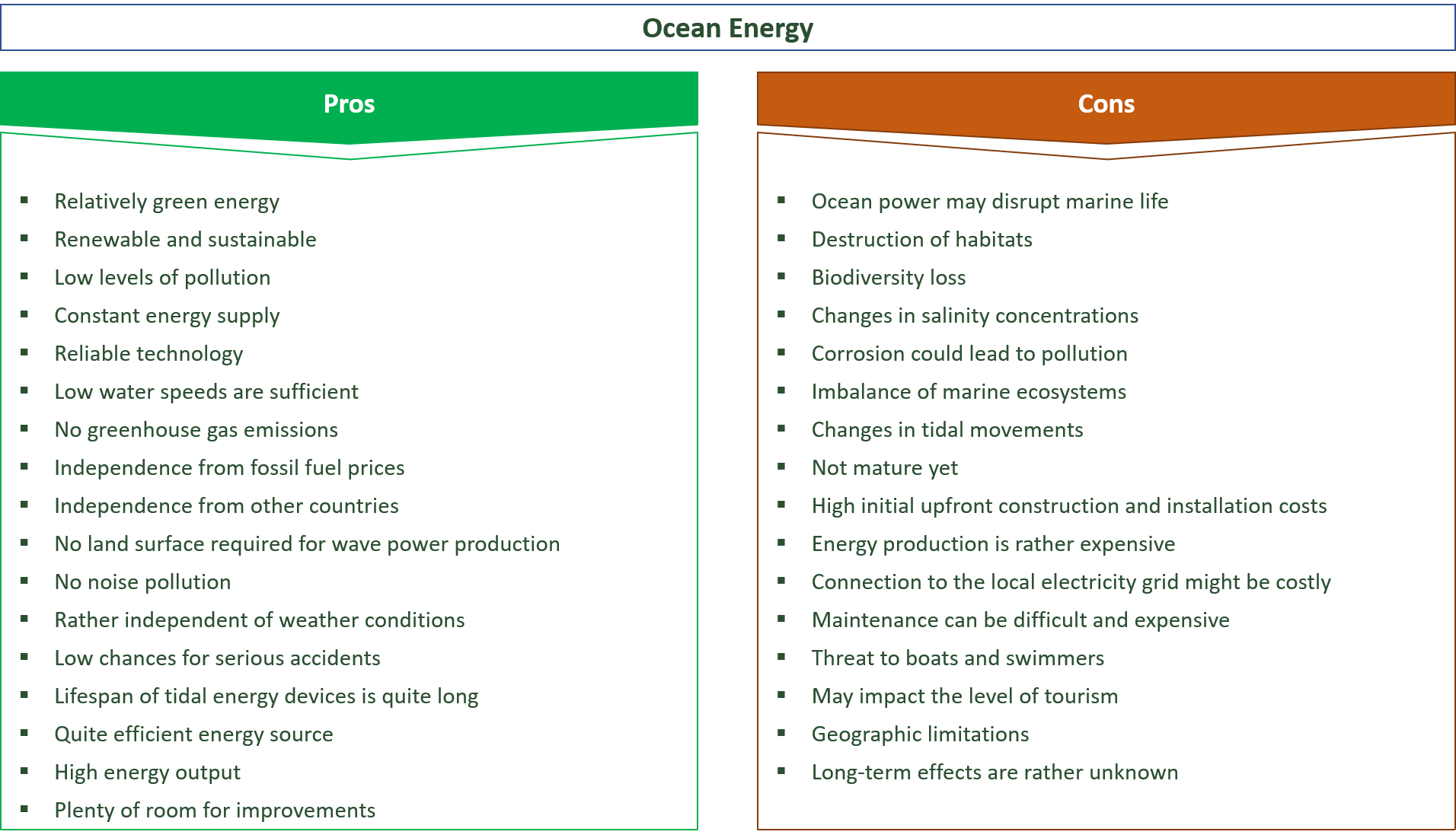
33 Main Pros & Cons Of Tidal Wave Energy E&C
Advantages of tidal power. Renewable and fossil fuel free. Unlike fossil fuels, tides are a nearly unlimited resource that we aren't running out of. This type of energy does not generate greenhouse gases or cause pollution through oil spills or burning like fossil fuels do. Predictable and consistent power.
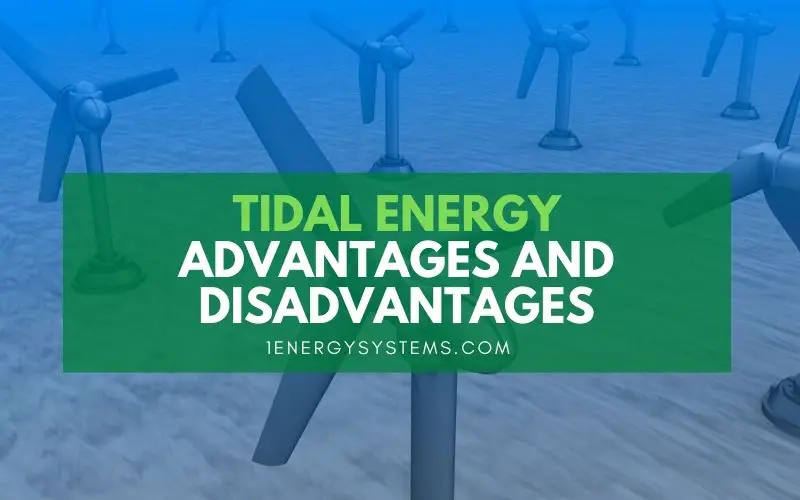
Tidal Energy Advantages and Disadvantages
They take advantage of the Tidal energy systems use the energy in seawater to generate electricity. They take advantage of the tides' regular movement towards and away from the coast, as well as fast-moving currents through underwater channels. Tides can be exploited in two ways to capture energy. At first, potential energy in the head of.
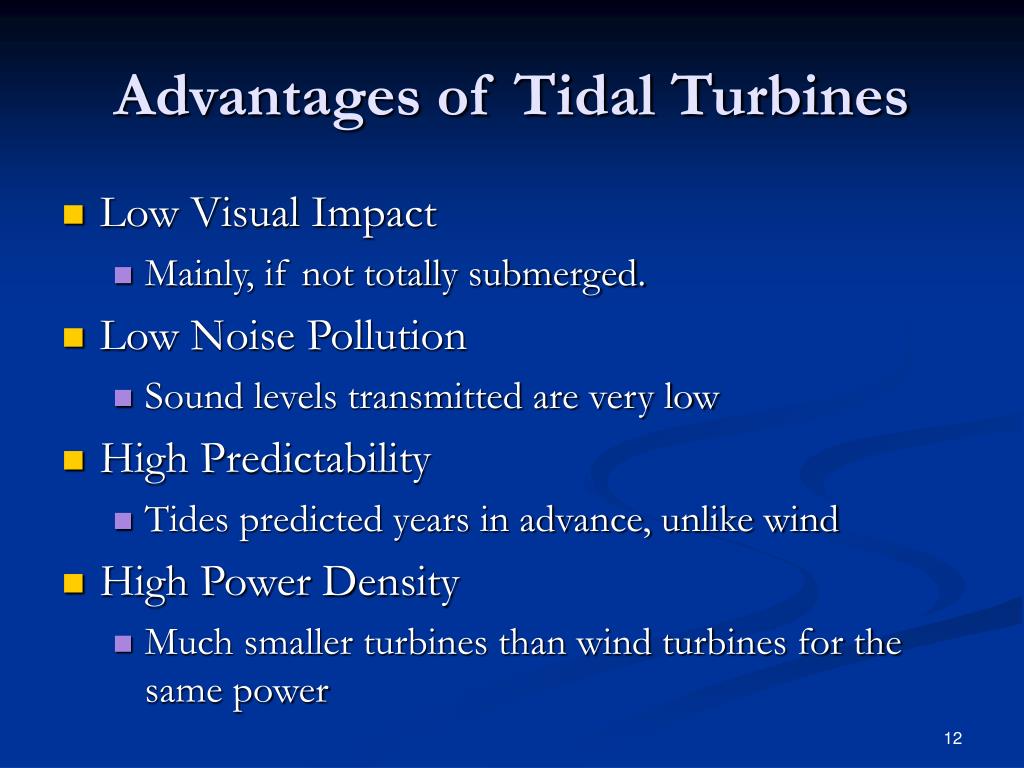
PPT Tidal Power PowerPoint Presentation, free download ID2403501
Even still, upkeep is still necessary, and working on anything that is submerged underwater is more difficult. 3. Expensive. The high initial expenses of tidal power are one of its main disadvantages. Because water has a higher density than air, tidal energy turbines must be far more robust than wind turbines.

Tidal Energy Advantages, Disadvantages, and Future Trends
Both solar and wind power are viable alternatives to fossil fuels. However, their main disadvantage is their unpredictability, which renders them unreliable. Tidal wave energy, on the other hand, is more predictable than any of the renewable energy resources. Tides follow a fixed pattern based on the phases of the moon.

Advantages And Disadvantages Of Tidal Energy Is Tidal Power The Future? 6 Tidal Energy Pros
Meanwhile, early tidal energy facilities show how leveraging tidal energy is a replacement for fossil fuels. With the focus on renewable energy becoming more apparent 6, clean energy is something we have to make use of. However, as with many things, Tidal energy has advantages and disadvantages. The Advantages of Tidal Energy

Tidal Energy Advantages And Disadvantages
Advantages and Disadvantages of Tidal Energy. Len Burgess 30 Aug 2020. Tidal energy is clean, sustainable and renewable. Though individual homeowners can't take advantage, on a large scale, the power generated from tidal energy could replace our need for fossil fuels. This is good for the planet and your pocket.